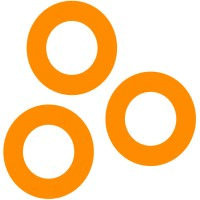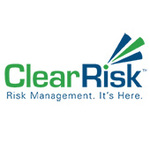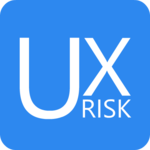Description

Horizon Portfolio Management

Project Risk Manager
Comprehensive Overview: Horizon Portfolio Management vs Project Risk Manager
Horizon Portfolio Management and Project Risk Manager are tools that cater to different aspects of financial and project management, often used by businesses to streamline operations, manage risks, and optimize performance. Here’s a comprehensive overview of both:
Horizon Portfolio Management
a) Primary Functions and Target Markets:
- Primary Functions: Horizon Portfolio Management is designed to manage investment portfolios, providing tools for asset allocation, performance analysis, risk management, and reporting. It supports a wide range of financial instruments including equities, fixed income, derivatives, and alternative investments.
- Target Markets: The primary users are asset managers, hedge funds, private banks, and investment advisors. The tool is particularly valuable for firms that require sophisticated portfolio management solutions with real-time data analytics and reporting capabilities.
b) Market Share and User Base:
- Although specific market share data can vary, products like Horizon Portfolio Management typically have a strong presence in mid to large-scale financial institutions that need robust portfolio management capabilities. These solutions often face stiff competition from other established products like Charles River Development, BlackRock's Aladdin, and Bloomberg’s asset management solutions.
- The user base is broad among financial sectors that prioritize in-depth portfolio analysis and performance tracking, and institutions that are looking for customizable solutions to meet regulatory and client reporting requirements.
c) Key Differentiating Factors:
- Comprehensive Analytics: Horizon often differentiates itself with comprehensive analytics, offering tools for risk-adjusted return optimization, scenario analysis, and stress testing.
- Customization and Flexibility: It is known for offering customizable interfaces and reporting structures that allow for adaptability across various financial sectors.
- Integration Capabilities: Horizon is usually praised for its ability to integrate with other financial data systems, providing seamless data flow and operational efficiency.
Project Risk Manager
a) Primary Functions and Target Markets:
- Primary Functions: Project Risk Manager focuses on identifying, analyzing, and mitigating risks in project management. It facilitates risk assessment, prioritization of risk mitigation strategies, and tracking of risk management plans. It may offer tools for risk simulation, scenario planning, and impact analysis.
- Target Markets: This tool targets industries where project management is complex and risks are high. Typical areas include construction, engineering, IT, and large-scale manufacturing. It appeals to project managers, risk officers, and executives who are tasked with ensuring project deliverables within defined budgets and timelines.
b) Market Share and User Base:
- Similar to portfolio management tools, project risk management solutions occupy a competitive space. Market leaders often include solutions like Primavera Risk Analysis and Microsoft Project with advanced risk management plug-ins.
- Project Risk Manager might share the market with industry-specific tools and sees usage in sectors heavily reliant on effective project and risk management practices.
c) Key Differentiating Factors:
- Advanced Risk Analysis: Offers advanced algorithms for quantitative risk analysis, which are crucial for projects with complex risk landscapes.
- Integration with Project Management Tools: The ability to seamlessly integrate with existing project management platforms like Microsoft Project or JIRA can be a distinguishing feature.
- Scalability and Industry Focus: Its ability to scale according to the project size and industry-specific features often marks it out from more generic project risk management tools.
In conclusion, both Horizon Portfolio Management and Project Risk Manager serve critical functions in their respective fields of investment and project management. While they share common goals of optimizing performance and managing risks, they are differentiated by their specific functionalities, target industries, and integration capabilities, catering to the nuanced needs of their user bases.
Contact Info

Year founded :
Not Available
Not Available
Not Available
Not Available
Not Available

Year founded :
2014
Not Available
Not Available
United Kingdom
http://www.linkedin.com/company/project-risk-manager
Feature Similarity Breakdown: Horizon Portfolio Management, Project Risk Manager
Providing a detailed feature similarity breakdown for specific software products like Horizon Portfolio Management and Project Risk Manager can be complex due to the dynamic nature of software updates and the differing scopes of what each product might include. However, I can offer a general framework for understanding how these types of products could be compared, broadly outlining core features and typical characteristics.
a) Core Features in Common
Both Horizon Portfolio Management and Project Risk Manager are likely to have several core features in common, especially if they serve overlapping functions such as project and portfolio management. These may include:
- Dashboard and Reporting: Both products likely offer dashboards that provide insights into project performance, resource allocation, and financial metrics.
- Risk Assessment: Capabilities to identify, assess, and track risks associated with projects are a fundamental aspect of both software types.
- Resource Management: Tools to manage and optimize the use of project resources, including human resources, finances, and materials.
- Project Tracking and Collaboration: Essential for keeping track of project timelines, deliverables, and team communications.
- Financial Management: Budgeting, forecasting, and financial reporting tools to keep projects on track financially.
b) Comparison of User Interfaces
While I don't have screenshots or direct comparisons of specific product interfaces, we can discuss general characteristics:
- User Experience (UX): Both software solutions aim for a user-friendly experience, but there might be differences based on the target user persona. Project Risk Manager may focus more on risk-related metrics and visualizations, while Horizon Portfolio Management might provide a broader view with dashboards tailored for portfolio-level insights.
- Customization and Flexibility: Both systems should offer some degree of customization to meet the specific needs of different businesses or industries, such as customizable dashboards or report-building capabilities. However, the level of customization available can vary significantly.
- Ease of Navigation: Navigation and intuitive arrangement of tools and features can differ, with some platforms being more streamlined or requiring fewer clicks to access common functions.
c) Unique Features
Each product might have unique features or specializations that differentiate them:
- Horizon Portfolio Management:
- Strategic Alignment Tools: May include features focused on aligning projects with business strategy or corporate objectives.
- Portfolio Optimization: Advanced tools for evaluating and optimizing the entire project portfolio, not just individual projects.
- Project Risk Manager:
- Advanced Risk Analytics: More sophisticated tools for modeling risk scenarios, performing quantitative risk analysis, or risk simulation.
- Integrations with Risk Databases or Algorithms: Unique integrations or partnerships that provide access to external risk data or sophisticated algorithms for assessing risks.
Overall, while there is overlap in the core features provided by both software types, the nuances in functionality, especially related to portfolio-level insights or risk-specific functionalities, set them apart. As always, a detailed comparison would benefit from accessing demo versions or detailed feature lists provided by the vendors of these products.
Features

Not Available

Not Available
Best Fit Use Cases: Horizon Portfolio Management, Project Risk Manager
Horizon Portfolio Management and Project Risk Manager are tools designed to enhance the efficiency and effectiveness of project and portfolio management. Here’s a detailed description of their best fit use cases, including types of businesses or projects they suit best, scenarios where each is preferred, and how they cater to different industry verticals or company sizes.
Horizon Portfolio Management
a) Types of Businesses or Projects
- Enterprises with Multiple Projects: Horizon Portfolio Management is ideal for large enterprises managing multiple projects or programs simultaneously. Organizations in sectors like IT, finance, and manufacturing where projects are complex and interlinked can greatly benefit from this tool.
- Investment Firms and Financial Institutions: Companies involved in asset management, where tracking and balancing varied investment portfolios is crucial, will find this tool particularly beneficial.
- Companies Focused on Strategic Alignment: Businesses prioritizing strategic alignment of projects with organizational goals. Horizon facilitates portfolio optimization to align resources and efforts with strategic objectives.
d) Industry Verticals or Company Sizes
- Large Corporations: Typically, larger corporations with extensive human resources and budget allocations use Horizon Portfolio Management to gain insights into performance metrics and the impact of their project portfolios.
- Cross-Industry Applications: While useful in diverse industries, its application shines in high-stakes sectors like finance, telecom, and asset management, where aggregated portfolio visibility and dynamic resource allocation are essential.
- Scalable for Growing Enterprises: Mid-sized companies experiencing rapid growth can also utilize Horizon Portfolio Management to streamline their project oversight capabilities as they expand.
Project Risk Manager
b) Scenarios for Preferred Use
- Risk-Intensive Projects: Ideal for projects with high levels of uncertainty and risk, such as in construction, oil & gas, pharmaceuticals, and technology development. It allows organizations to foresee potential issues and mitigate them effectively.
- Regulatory-Heavy Industries: For industries where regulatory compliance is critical, such as healthcare and environmental services, having a robust risk management protocol is key to minimizing compliance failures.
- Critical Infrastructure Projects: Used for managing and mitigating risk in critical infrastructure projects, like government initiatives or large-scale civil engineering projects, where failover can have significant consequences.
d) Industry Verticals or Company Sizes
- Industries with High Compliance and Risk Exposure: Particularly useful for healthcare, finance, aviation, and energy sectors where understanding and mitigating risk is paramount to operational success.
- Small-to-Medium Enterprises (SMEs): SMEs engaged in niche markets or those in turbulent industries use Project Risk Manager to secure their operations against potential threats effectively.
- Project-Centric Organizations: Any organization, irrespective of size that is heavily project-centric and wants to implement standardized risk management processes across projects.
Conclusion
Horizon Portfolio Management and Project Risk Manager serve different niches, with the former focusing on broader portfolio oversight and alignment, and the latter pinpointing risk management for projects. While both cater to a wide range of industries and company sizes, each is optimized for specific operational needs, catering to the complexities of large-scale project management or the intricacies of risk management in environments with high uncertainty.
Pricing

Pricing Not Available

Pricing Not Available
Metrics History
Metrics History
Comparing teamSize across companies
Conclusion & Final Verdict: Horizon Portfolio Management vs Project Risk Manager
Conclusion and Final Verdict
When deciding between Horizon Portfolio Management and Project Risk Manager, it is essential to evaluate each product's features, costs, user experience, scalability, and how well they align with your specific business needs.
a) Best Overall Value
Horizon Portfolio Management most often offers the best overall value for organizations that require comprehensive portfolio management solutions. It excels in providing a holistic view of multiple projects, facilitating strategic decision-making and long-term planning.
b) Pros and Cons
Horizon Portfolio Management:
-
Pros:
- Offers a comprehensive suite of tools for end-to-end portfolio management.
- Facilitates strategic alignment of projects with business objectives.
- Advanced analytical capabilities provide deep insights into portfolio performance.
- Scalable for growing businesses with expanding portfolios.
-
Cons:
- May be overkill for smaller organizations focused on individual project management.
- Higher learning curve due to its extensive features.
- Generally requires a larger upfront investment.
Project Risk Manager:
-
Pros:
- Specializes in identifying, assessing, and managing project-specific risks.
- Intuitive interface designed for risk management tasks.
- Quicker implementation and lower costs for smaller teams focused on risk.
-
Cons:
- Limited portfolio management capabilities.
- May not provide the level of depth required for complex, multi-project portfolios.
- Less suited for organizations needing extensive strategic planning features.
c) Recommendations for Users
-
Identify Your Needs: Organizations should first identify whether their primary focus is on managing individual project risks or if they require a higher-level strategic view of their entire portfolio.
-
Consider Scalability: Horizon Portfolio Management is more suitable for companies expecting growth and needing a scalable solution. Project Risk Manager is better for smaller projects primarily concerned with risk assessment.
-
Assess Budget and Resources: Consider the long-term investment and training resources. If budget constraints are significant, Project Risk Manager might be a more economical choice in the short term.
-
Evaluate Integration Needs: If you require a tool that easily integrates with other systems or offers extensive customization options, carefully evaluate which product aligns with your existing IT infrastructure and business processes.
In conclusion, the decision largely depends on the specific needs of the organization, its size, and the complexity of its project management requirements. Horizon Portfolio Management is the preferred choice for organizations seeking a comprehensive solution that encompasses both strategic and operational management of projects, while Project Risk Manager is better for those focused on detailed risk management within individual projects.
Add to compare
Add similar companies




